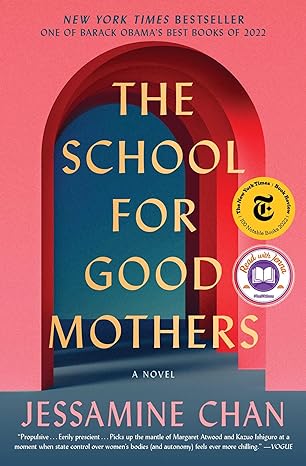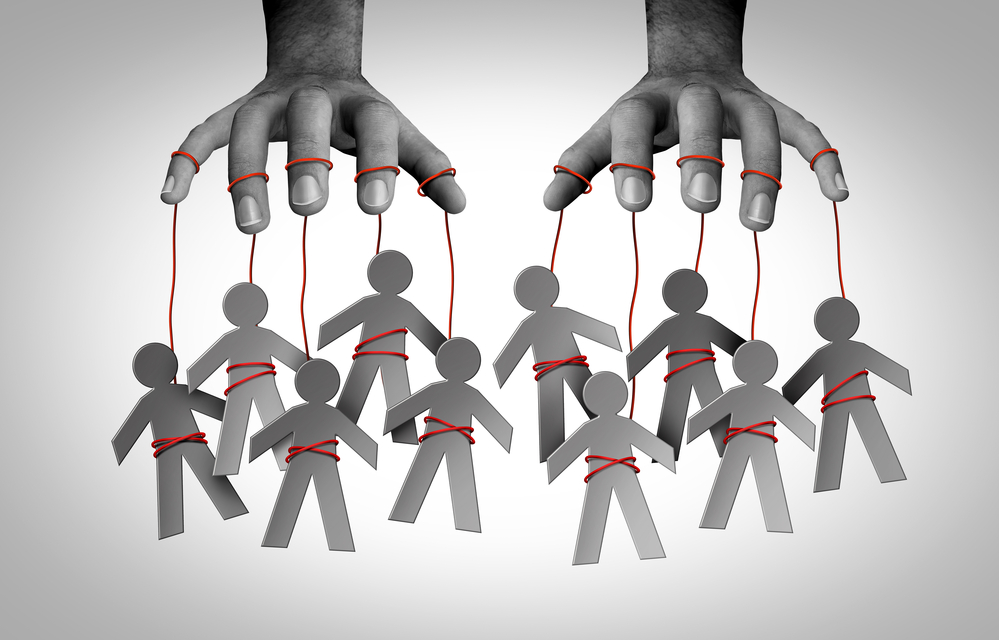Jessamine Chan’s 2022 novel The School for Good Mothers (New York: Simon & Schuster) constructs a bureaucratic dystopia in which unfit parents—mostly mothers, but not all—are ordered by family courts into a re-education camp run by Child Protective Services.

Perhaps the most chilling part of the narrative is how easy it is to imagine a path towards such a future. After the successful television adaptation of The Handmaid’s Tale debuted in 2017, Margaret Atwood reflected, “There’s a precedent in real life for everything in the book,” she says. “I decided not to put anything in that somebody somewhere hadn’t already done.”
The same can be said of Chan’s School. Forcefully held opinions about the right and wrong way to parent abound in both Chan’s world and ours. So do the technologies capable to monitoring any and all interactions between parent and child. Even scanners and AI technologies capable of perceiving and tracking moment to moment moods and micro-reactions do not seem so much the domain of speculative science fiction as products that could show up in a Google commercial any day.
And, of course, we do already have a legal apparatus for removing children from unfit parents—and for good reason. Child abuse is all too common and can be incredibly difficult to detect. However, Family Courts and Child Protective Service workers, even when well intentioned, do not always have the ability to know whether they are doing harm or good by removing a child from their parent’s supervision. This is most apparent in the sad cases of children who are unnecessarily removed or subjected to abuse and neglect after being placed in the foster care system. This situation is unfortunately understudied, with child welfare agencies often expected to use scarce resources to police themselves.
The main protagonist in Chan’s novel is an overworked, sleep-deprived, recently-divorced woman who loses her 18-month-old daughter because she left her home alone in an ExerSaucer for 2.5 hours so she could get a coffee and retrieve some files from her office. Ideal? Certainly not. Perhaps not even particularly sympathetic. But it is far from obvious that this one-time situation is so dangerous that it justifies the trauma of forced removal. It is a situation reminiscent of the Salon piece written by the woman who left her children in a car with the windows cracked on a cool day for 5 minutes and wound up facing criminal charges it took years to fight. That particular incident happened to a woman with the skills to professionally write about it and the resources to fight the charges. A report from Human Rights Watch and the ACLU found that children are being removed from homes due to circumstances associated with poverty rather than abuse or neglect, such as the family whose eight-year-old son was removed because they were using bottled rather than running water while temporarily living in a camper until they found a rental. In part due to the higher rates of economic hardship among Black and Indigenous families, they are more likely to be investigated and to have children placed in foster care.
And although I hope I am right in seeing forced re-education as something the public would not currently support, it is certainly not without precedent in the United States. The most extreme example is the hundreds of thousands of Indigenous children who were kidnapped and forced into “Indian Boarding Schools” between the 1860s and 1960s under the presumption that the state knew what was best for them. The United States does already provide resources for in-home training for people whose children might otherwise be taken away. I have no specific argument to make with respect to these programs—I don’t know enough of the particulars and it is an empirical question whether or not their current incarnations are helpful anyway. But the existence of such a practice does suggest that it is no great stretch to imagine current policymakers responding favorably to the idea of putting a parenting “expert” in charge of determining whether or not another parent is doing their job well enough. When contemplating the turn to experts it’s always worth revisiting Thomas Leonard’s Illiberal Reformers, an incisive history of Progressive Era social reform efforts that compiles example after example of discriminatory and oppressive policies implemented in the name of experts using their supposedly superior knowledge to ‘correct’ other’s choices.
Chan’s novel illustrates poignantly the potential harms of turning down such a road. Without spoiling the plot, parents threatened with the loss of their children are often willing to go to great lengths to prevent that from happening, and as such are vulnerable to abuse and manipulation. The exercise of trying to fit human relationships into the current scientific understanding of what behavior is ‘best’ results in frustrating absurdities. Ultimately, putting discretion over the best way to be human in the hands of bureaucratic authorities deprives relationships of their authenticity. In the quest to perfect humanity, we become less humane.
Jayme Lemke is a Senior Research Fellow and Associate Director of Academic and Student Programs at the Mercatus Center at George Mason University and a Senior Fellow in the F.A. Hayek Program for Advanced Study in Philosophy, Politics, and Economics.


READER COMMENTS
David Seltzer
Apr 11 2024 at 2:26pm
Jayme: At least as chilling; Philip Roth’s “The Plot Against America.”
john hare
Apr 11 2024 at 4:42pm
Another side of the situation is kids that grow up without discipline. Often become adults without self discipline. I had them called on me for swatting my sons pamper when he was throwing a tantrum. Apparently a tantrum is acceptable to them. Along with jail populations and LEO workloads.
Brenda H Nelson
Apr 15 2024 at 9:30pm
We Feminists shouted the solution back in the 70s. All mothers need a guaranteed income…married or not.
Its the most important job in the world and its the only one not paid for.
Her independent income could allow her to leave abusive or even just unhappy relationships.
There should also be cooperative living everywhere for single women…mothers or not. Women of all ages helping each other out.
I DO see preadmission trainings in coop living as being a prerequisite. How to handle interpersonal conflict needs to be taught.
But we live in a patriarchal paradigm that sees males controlling females as essential. And male dominated government controlling females as essential.
Women need to be wholly independent of males and males dominated institutions.
We can share child care, food, housekeeping chores etc. in cooperative female/ and child communities.
Patriarchy fears women will establish matriarchy and do to them what they’ve done to us.
But while I see many free MATRISTIC communities in our future, I do NOT see matriarchal domination of men and the world as a solution.